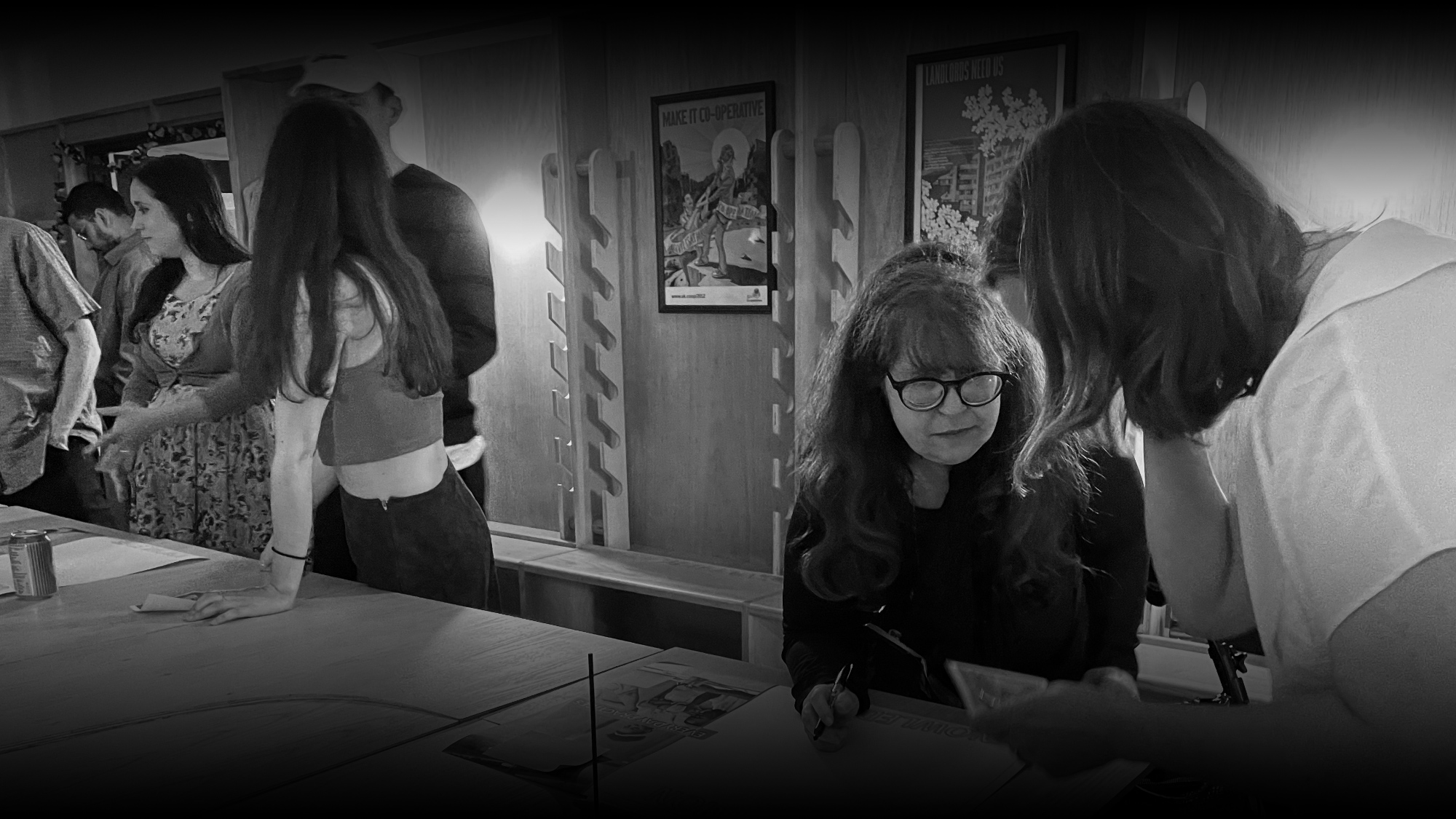Sustainable Economies:
Funding for Resilient Communities
Sun, Mar 23
WORKSHOP
In Autumn 2023, the Un-Edge team got together with folks from the Postgrowth Institute, Solidfund, Kendraio, Outlandish Coop and Public Works to discuss and share knowledge on challenges and opportunities for funding the community sector.

In Autumn 2023, the Un-Edge team got together with folks from the Postgrowth Institute, Solidfund, Kendraio, Outlandish Coop and Public Works to discuss and share knowledge on challenges and opportunities for funding the community sector. We know that the way funding is distributed and organised is a thorny area for a lot of people working in the community sector. Our plan was to get a group of people together who have been thinking deeply about some of these issues around community governance models, and what the unaddressed questions are in this context that we need to tackle to move forward. For example, can we rethink community wealth so there is less reliance on short-term and institutionally dependent funding, volunteer support, quantitative measures of success, and other unsustainable fixes? What are the legal constraints that limit funding for resilient communities? How can we conceive funding models amenable to this approach?
In this discussion we focused on funding and other forms of support within sustainable economies. We wanted to think through how community wealth can be less reliant on short-term institutionalised funding, volunteer support, quantitative measure of success and other unsustainable fixes (e.g. self-taxing, making visible invisible work). This activity is allied with the work of organisations such as the Joseph Rowntree Foundation and the Civic Power Fund and wider discussion on the urgent need to think differently about how the community sector is financed and how that thinking must have the green transition at its core.
Identifying the problem was, therefore, the first step in our ongoing Un-Edge project. We’ve had a clear picture of this from previous research, including the Counter-Framing Design project, where we found that organisations and communities who wanted to do things differently— against hierarchies, capitalism as the default, and uneven power relations within existing institutions— often ran into the same practical and ideological problems that hindered their democratic aims day-to-day. We’ve distilled these observations into four interdependent areas of concern that all pivot around our need to redesign our relations, namely 1) relational power, 2) sustainable economies, 3) evaluation criteria and 4) daily practices. For instance, many organisations want to support themselves without vying for grants in competition with potential allies, or without having to perform their disenfranchisement. Others are concerned that the power dynamics in the room are still heavily unbalanced, despite the benefits of democratic decision-making practices.
Whilst our goal in Un-Edge is to start defining these practices in partnership with our collaborators, we do this with the knowledge that there is no one ‘perfect’ solution but rather many adaptable and shifting ways of negotiating potential pathways forward.

